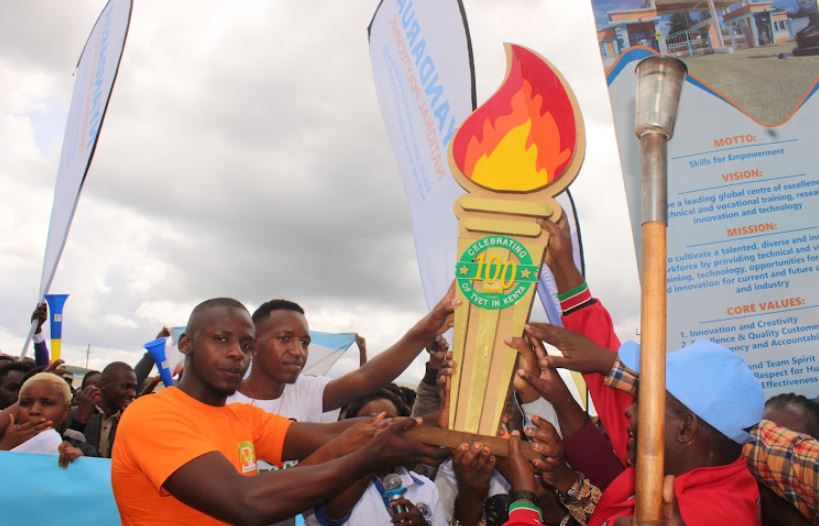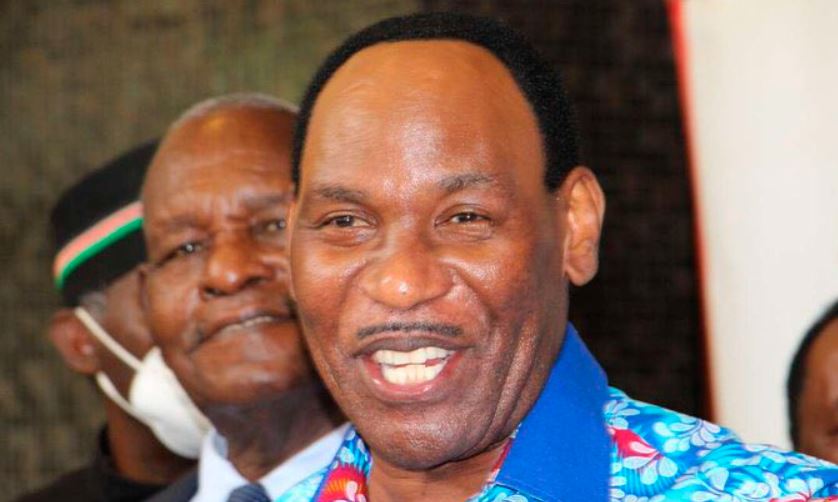 Two months ago, President William Ruto launched a TVET torch at the Nyeri National Polytechnic to begin a nationwide journey covering all 47 counties.
Two months ago, President William Ruto launched a TVET torch at the Nyeri National Polytechnic to begin a nationwide journey covering all 47 counties.
On Wednesday, Machogu noted that the torch was in the Nyanza region this week, specifically in Migori County. He explained the reason behind the nationwide tour as higher education institutions prepare to celebrate 100 years of existence.
“The purpose of the torch really is to get to every corner of the country creating awareness that our young people should not stay home even if they scored a D,” Machogu said.
He added, “Nobody should stay home. They should be able to take an opportunity of training in a TVET or TTI.”
Machogu stated that the torch will traverse all counties to encourage youth to invest in acquiring technical skills essential for the industry.
The torch will then make a final stop at Kabete National Polytechnic, where the centenary celebrations will be held on July 31.
“If we want to achieve our vision 2030, then we must equip the young people with the necessary skills and competencies which can only be achievable from our technical institutions and TVETs,” said the CS.
Machgu at the same time said the ministry aims to change any negative perceptions Kenyans have about TVETs, emphasizing that they offer significant employment opportunities. He noted that more students can be enrolled in TVETs and Teachers Training Institutions.
The CS acknowledged that while the ministry has not yet reached the maximum potential of the technical institutions, it is important to celebrate the milestones achieved over the 100 years of TVETs’ existence.
Additionally, he highlighted that the state has managed to construct 238 TVET institutions in just a few years.
CS Machogu mentioned that trainees from TVETs are currently driving the Kenyan economy with their skills. He added that the ministry aims to establish a TVET institution in all 290 constituencies across the country.
He said only 52 constituencies lack a TVET institution, adding that the state is working to build 16 more this year.
“We have 238, there are 70 of them which still don’t have equipment. But this year, we have been able to provide funds and in two or three months we will be able to avail the required equipment to those institutions lacking,” Machogu said.








